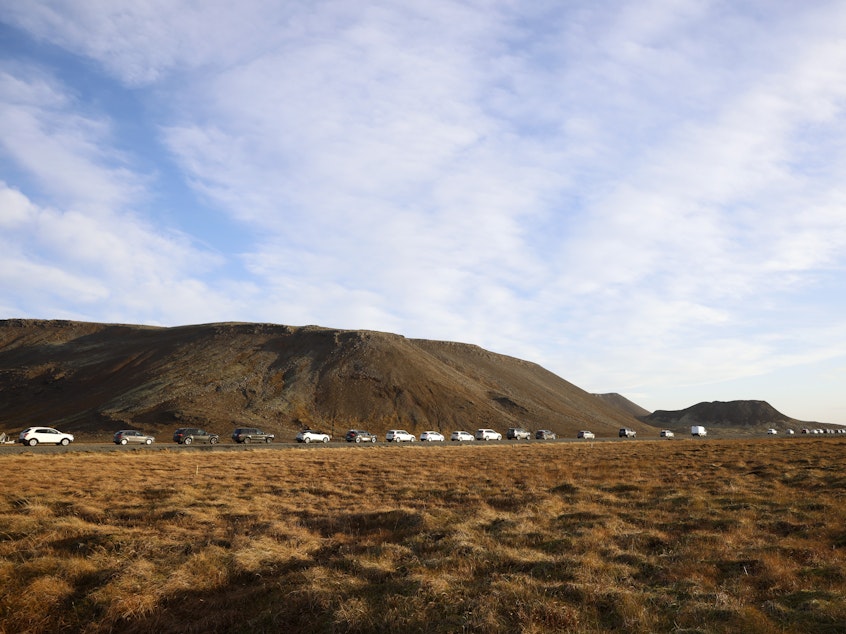A volcano in southwestern Iceland is expected to erupt in the next few days

A volcano is southwest Iceland is expected to erupt in the next few days, the Icelandic Meteorological Office has warned.
Hundreds of small earthquakes have been rattling the Reykjanes Peninsula in southwestern Iceland over the past few days — an early warning sign of a looming volcanic eruption. About 900 earthquakes have been detected so far since midnight on Monday. A day earlier, more than a thousand quakes — all below a 3 magnitude — were recorded.
The Icelandic Meteorological Office said Sunday there is a significant chance that fire will soon break its way to the surface. It is also likely that mercury will appear on the bottom of the ocean.
On Friday, Iceland's Civil Protection Agency declared a state of emergency as a preventive measure, and ordered the evacuation of Grindavik, a coastal town of over 3,300 residents.
Officials did not say when residents will be able to return, but over the past few days, they have been allowed to briefly visit certain neighborhoods in order to pick up their belongings.
Sponsored
In response to the threat of a volcanic eruption, the Blue Lagoon, a man-made geothermal pool and popular tourist destination near Grindavik, also announced Thursday it will temporarily closed its doors until Nov. 16, "at which point the situation will be reassessed."
Volcanoes are a major feature of Iceland's geography. The country is home to 32 volcanic systems. Most recently, a volcano linked with the Litli-Hrútur mountain erupted in July and lasted about a month. It was the third eruption on the Reykjanes Peninsula in three consecutive years. Prior to 2021, the peninsula did not see an eruption in over 800 years.
Among the biggest and most disruptive eruptions to occur in the country was in 2010, when volcanic activity in southern Iceland spread ash across Europe's atmosphere and disrupted air travel in the continent for several days. [Copyright 2023 NPR]



